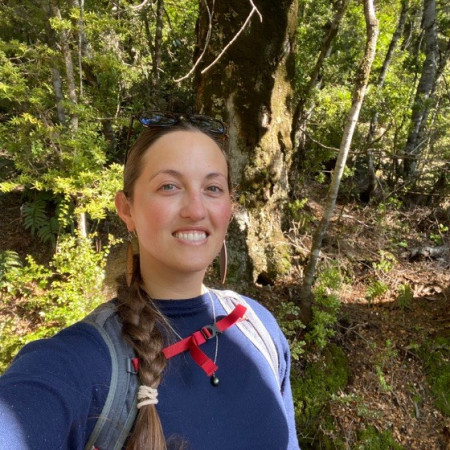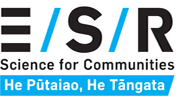Georgia Bell

Georgia Bell is a Kai Pūtaiao Māori – Māori Impact scientist at ESR,Georgia earned her BSc in Microbiology and Immunology, PGDipSci in Microbiology and Immunology and MSc in Marine Biology from the University of Otago.Contact:georgia.bell@esr.cri.nz |
-
Research
Georgia’s role at ESR places her at the frontier of establishing the new way ESR work with Māori. Her core focus is on developing a new programme of work that is Māori led and firmly rooted in mātauranga Māori. She will expand on her previous research into mahinga kai (Māori food sources) and build new collaborations with Māori around environmental enhancements.
There are two main parts to Georgia’s role: Te Hāpai Ō and He Ō ki Tua, which are the mahinga kai and outreach programmes respectively.
As Georgia explains “Te Hāpai Ō aims to provide mahinga kai harvesters with tools and research to help analyse the safety of their kai for consumption. For this work, we predominantly work with Customary Protections Areas, which are areas managed by tāngata whenua. He Ō ki Tua looks to increase the exposure our tamariki and rangatahi have to science in Aotearoa and bring science to them and their environment and context.”
And Georgia’s ultimate dream? “One day, I hope to see more of our rangatahi within STEM [science, technology, engineering and maths] pathways and working in places like ESR where they can apply their mutlidisciplinary worldview in helping to solve some of our science challenges, as well as ensure that the work we do is impactful for our Māori communities."
As Georgia explains, in her life, she has always been involved in much kaupapa in te ao Māori: mahinga kai, waka hourua, waka ama, maramataka, mau taiaha, kapa haka, reo Māori and rongoā.
“And I feel really privileged because due to advancing technologies and the revival of mātauranga Māori and cultural practices, the access that we have today to various kaupapa Māori is much greater than our parents or grandparents generations were able to experience – and that is not a privilege that I take for granted,” she says.
“As young Māori, we recognise and appreciate the tremendous work that was required from those who came before us to ensure these kaupapa would be available for future generations and could be a part of our everyday lives once again.”
